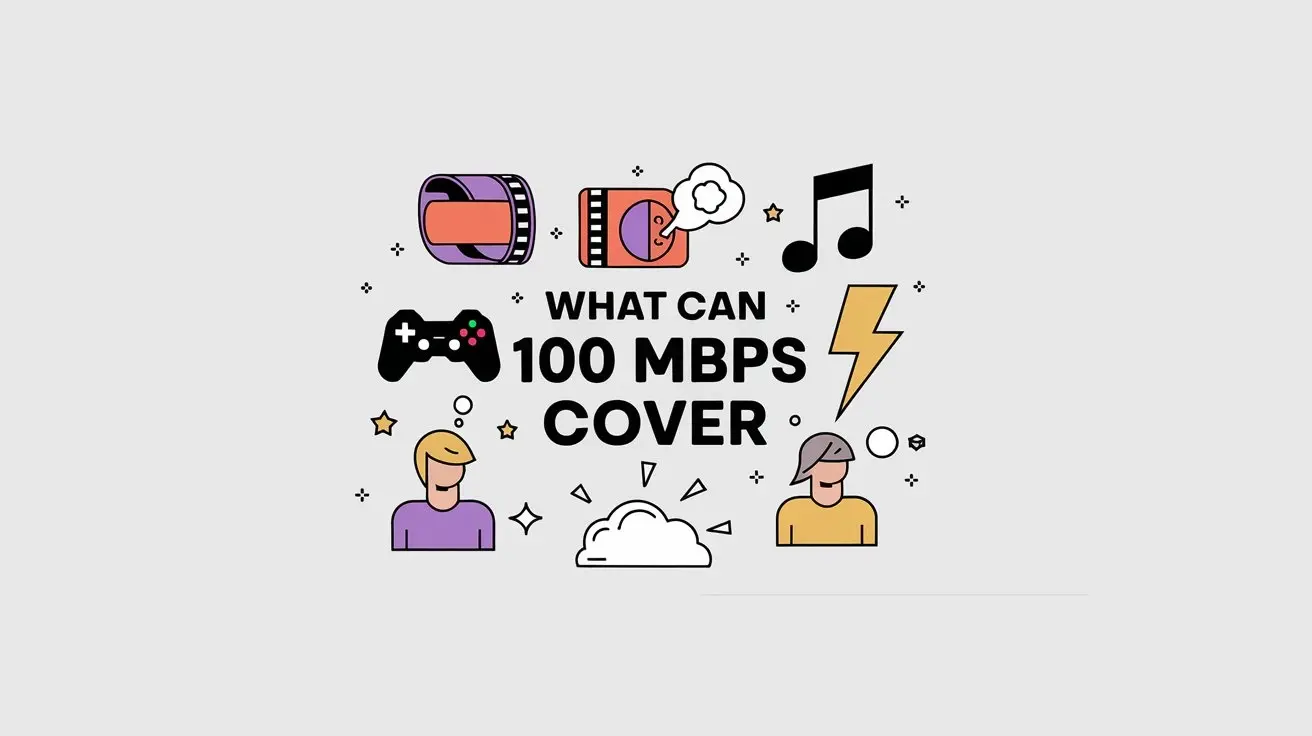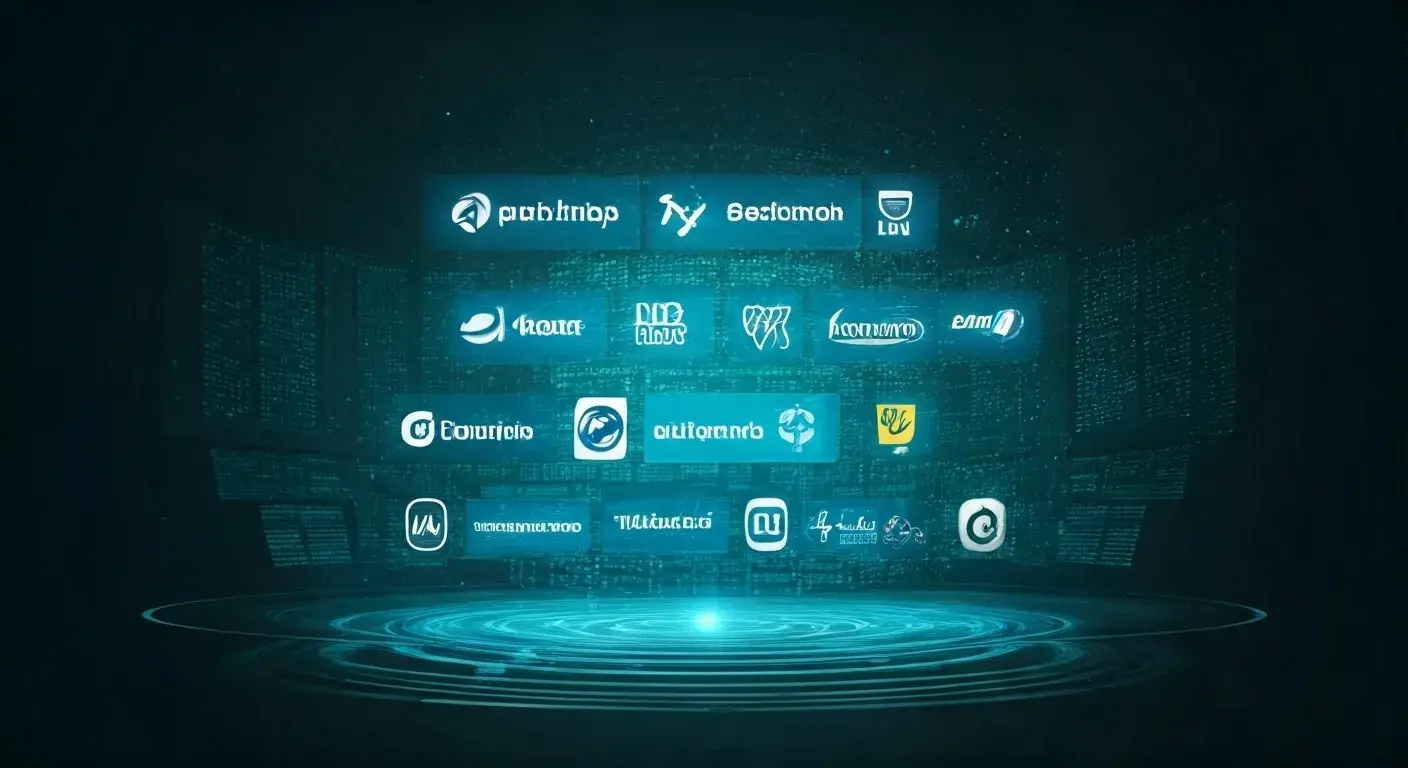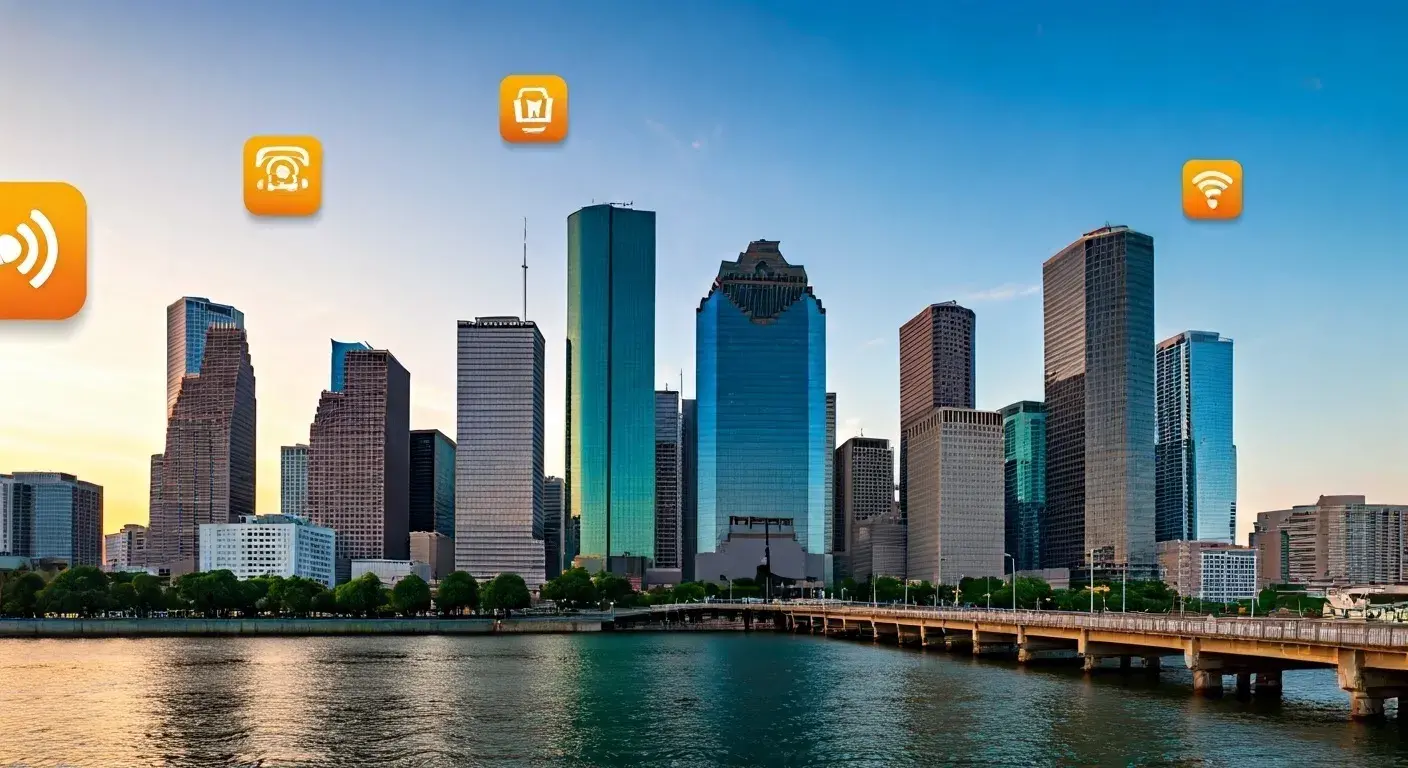
In today’s world, having a good home internet connection is very important. It’s not just nice to have; it’s a must. Whether you work from home, watch shows online, or just use the internet, you need a fast and reliable internet service. With so many providers and plans to choose from, it can be hard to decide which one is best for you. This guide will help you compare your options. You will get the knowledge to pick the best home internet plan for your needs.
Understanding Different Types of Home Internet Services
Before we look at internet providers and plans, we need to know about the types of home internet services. The most common types are fibre, DSL, cable, 5G, and satellite internet. Let’s take a closer look at each type. This will help us see how they work and what makes them different.
The Pros and Cons of Fiber, DSL, and Cable
Fibre internet, like Verizon’s Fios home internet and Google Fiber, provides very fast speeds, making it great for large files and video calls. However, it is not available everywhere. DSL internet is dependable but slower than fibre. Cable internet offers decent speeds and is widely available, but it may have data caps. Fibre is best for upload speed. DSL works well for basic internet use. Cable strikes a good balance between speed and price. Think about what you need in terms of speed and reliability when picking your home internet choice.
Emerging Technologies: 5G and Satellite Internet for Home Use
In the world of home internet, new technologies like 5G and satellite internet are changing how we connect with consumer data usage playing a significant role. 5G gives you fast speeds and low delays over a cellular network, often benefiting users with promotions like a virtual prepaid Mastercard. This is great for streaming movies and playing video games. Satellite internet helps people in rural areas where traditional services are hard to find. It offers a good way to connect. Both options have their benefits, so think about what you need for your home.
Evaluating Internet Speeds and What Your Household Needs
When you compare home internet plans, look carefully at the internet speeds offered by Spectrum Internet. Figuring out the right speed for your home can be hard. It varies based on a few things, including the number of devices that connect to the internet and the internet activities you do online. For example, playing online video games uses much more bandwidth than just checking your email, especially after the first year of service.
How to Determine the Right Speed for Streaming, Gaming, and Telecommuting
The more devices and people you have in your home, the faster your internet speed should be. This way, everyone can enjoy their time online without problems. Here are some things to think about when deciding how much speed you need:
- Streaming: If you want to watch movies or shows in high definition, you need a download speed of at least five Mbps for one person. For smooth 4K streaming on several devices at the same time, you'll probably need even faster internet.
- Gaming: Playing video games online needs quick download and upload speeds, especially for games with many players. Gamers should aim for at least 100 Mbps of internet speed, and low latency (or ping) is important, too.
- Telecommuting: If you are working or studying from home, you need fast and reliable upload and download speeds. These speeds help you with video calls, file sharing, and using work apps.
Tips for Conducting an Accurate Home Internet Speed Test
If you're unsure about your internet speed, an internet speed test can help you see your actual speeds. The test shows your download and upload speeds. This information can help you find problems with your current internet service. Here are some tips to get the most accurate speed test results:
- Use a wired connection: When you can, connect your computer directly to your modem with an Ethernet cable. This avoids any slowdowns from a Wi-Fi signal.
- Close any unnecessary programs or applications: Other programs running in the background may impact your speed test results.
- Run the test multiple times: For the best results, run the internet speed test at different times during the day. This means testing during busy hours and quieter times.
Comparing the Top Internet Providers in the United States
Now that you know about the types of internet and the applicable service terms regarding speeds you might need, let's check some of the best internet providers in the US along with customer reviews. The price and internet speed can be different depending on where you live. So, it’s important to see what internet options are available to take your connectivity to the next level at your address. Remember, even within the same zip code, availability can change.
Key Features of Leading Internet Service Providers
Several things make the best internet service providers, including major internet service providers, stand out. In addition to details like internet speed, data limits, and pricing, many customers now focus on good customer service and valuable extra features. Here are some important things that top internet service providers offer:
- Contract Options: Some ISPs ask you to sign a contract or yearly agreement to get a special price or certain plan.
- Data Caps: Many internet plans include data caps, which limit how much data you can use each month. If you use more than your limit, you might face extra fees or slower speeds.
- Bundled Services: Some internet providers create bundle deals if you combine internet service with other services like TV, phone, or home security.
Coverage Areas: Finding the Best Providers in Your Region
When you compare internet service providers, you will see that some things affect internet service availability, including fibre availability and fibre providers. Internet technology is changing fast, and some new and quick internet services have limited availability. Here are some things that affect which internet provider and plans you can get where you live:
- Location: Where you live matters a lot for which internet providers serve your area. Options like fibre, DSL, cable, and 5G depend on the company’s setup in your city or region.
- Competition: Usually, places with more competition among internet providers have lower prices, faster speeds, and better deals.
- Demand: High demand for certain internet speeds, especially gigabit speeds, can result in longer wait times for installation or limited availability in select areas.
Breaking Down Internet Costs: Hidden Fees and Value for Money
Understanding pricing and contract details, including the annual contract and equipment fees, can help you get great value for your money with auto-pay options. Before you sign up for your next internet plan, make sure you know all the total costs that come with your service.
Understanding Pricing Structures and Avoiding Overcharges
When you look at advertised internet plan prices for new residential customers in good standing, it's a good first step. However, you need to understand the pricing details, including any potential credit restrictions, to avoid surprises on your bill. Here are some questions to ask internet providers:
- What is the total cost each month, including taxes, fees, and surcharges?
- Are there any installation or activation fees?
- Will the monthly price change after a certain time, like 6 or 12 months?
- Do you have any discounts, such as a paperless billing discount, an autopay discount, or a special discount for signing a contract?
Bundle Deals vs. Standalone Internet: What’s More Economical?
Many internet providers offer bundle deals. These deals mix your home internet service with other things like TV, wireless phone plans, and home phone service. Bundling can be easy and convenient. However, it doesn't always mean you will save money on cheap internet. Here are some things to think about when choosing between a bundle or a standalone internet plan:
- Your actual needs: Promotional offers can be tempting, but make sure you need and will use all the services in the bundle.
- Promotional Periods: Bundled services often have a low price for a short time. Be aware of the regular price after the promo period ends.
- Value for Money: Look at the overall value of a bundled plan versus standalone plans. This will help you see if the savings and extra perks are worth it for you.
Customer Support and Service Reliability Among Major ISPs
Customer service problems affect the Internet service provider industry. When you look at internet providers in your area, take the time to check their reputation for customer support and how reliable their service is.
Ranking ISPs by Customer Satisfaction and Support Quality
To better understand how happy customers are with an internet provider and the quality of support, check out these resources:
- J.D. Power: J.D. Power does yearly studies on customer satisfaction for internet service providers in the United States.
- American Customer Satisfaction Index: The ACSI looks at many industries, including internet service providers, and shares customer satisfaction scores for the nation and different regions.
- Consumer Reports: This non-profit group helps consumers by publishing internet provider reviews based on survey results from its members.
Dealing With Internet Outages: How Quick is the Resolution?
Unexpected internet outages can be very annoying. Even the most reliable internet providers can have problems sometimes. Here are some tips on how to prepare and what to expect from your internet provider's customer service:
- Troubleshooting Tips: Before calling your internet service provider’s customer service, try simple fixes first. Restart your modem or router. Check for any loose connections. Sometimes, the problem is easy to solve.
- Contact Customer Support: If you still can’t fix the internet issue, reach out to your internet provider’s customer support team. You can contact them by phone, live chat, or online support.
- Estimated Resolution Time: When you report the outage, ask customer service how long it might take to fix it. This way, you can make other plans if you need to.
Installation and Setup: What to Expect From Different Providers
Internet providers offer different choices for how to install their service and their fees can vary. Many companies encourage customers to do a self-installation. However, there are some cases where hiring a professional for internet service installation is the best option.
Self-Installation Options Versus Professional Setup
Most big internet providers suggest self-installation. This can help you save money and let you set up your home internet when you want to. Here is what you can expect from self-installation and getting a pro to help you:
- Self-Installation: With this option, the internet provider will send you a modem and router. You will also get clear instructions on how to set up the equipment and turn on your internet service.
- Professional Setup: If you feel unsure about setting it up yourself, you can choose professional installation. Some providers might make this choice mandatory for certain internet services or complicated setups.
Preparing Your Home for Internet Installation Day
Whether you choose to have a professional install your internet service or do it yourself, there are some things you can do to get your home ready. This will help make the installation process go smoothly:
- Clear the Area: Create a clean space for your modem and router. The spot should be free from clutter and any dangers.
- Check Existing Connections: If you are changing internet providers, find your current modem and router, and unplug them.
- Secure Your Devices: If you have small children or pets, think about how to keep them safe and away from the area where you will be working.
Future-Proofing Your Internet Connection
To make sure your internet service meets your current and future needs, think about how you use the internet now and how you might use it later. As technology improves and we depend more on our internet at home, it is very important to plan.
Upgrades and Scalability Options for Growing Needs
As your home’s need for internet grows, you might want to think about upgrading your internet speed, bandwidth, or data limit. Here are some things to keep in mind when making this upgrade:
- Data Usage Trends: Check your data usage each month. This will help you see if your household is using more data regularly.
- Speed and Performance: Look at your current internet speeds. If they are slowing down or lagging, you might need a faster plan.
- Flexibility: When you look at internet plans, ask the provider about their rules for upgrades and downgrades.
The Role of Smart Home Devices in Your Internet Usage
Smart home devices are now common in many homes. They are not just science fiction anymore. These devices need a good internet connection. As you bring in more smart devices, your internet usage will likely increase. Remember these things:
- Network Capacity: Your internet connection must be strong enough to support many devices at the same time while they download, stream, and send data.
- Bandwidth Demands: Think about how much bandwidth all the devices in your home will need. This includes smart appliances, smart speakers, security cameras, and others.
- Future Needs: When you add new smart devices, you may need to improve your internet speed and data allowance to meet the higher demand.
Conclusion
In summary, picking the right home internet provider is very important for your needs. You should look at the pros and cons of different services. Check the internet speeds and think about the costs. Reliable customer support and steady service can make your internet experience much better. By keeping your connection up to date with new technology, you can make sure your service meets your changing needs. To find the best internet provider for your home, check out our detailed FAQs or contact us today.






